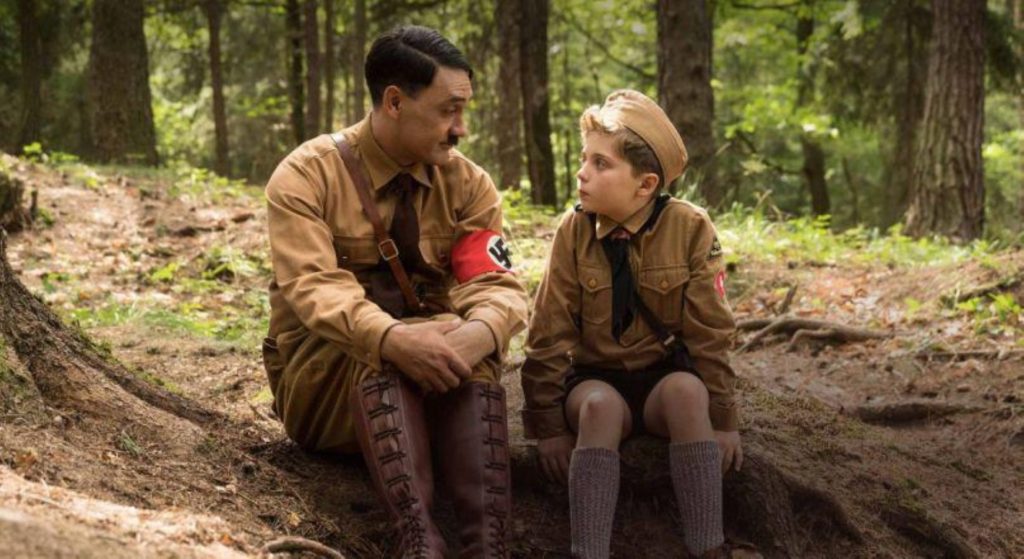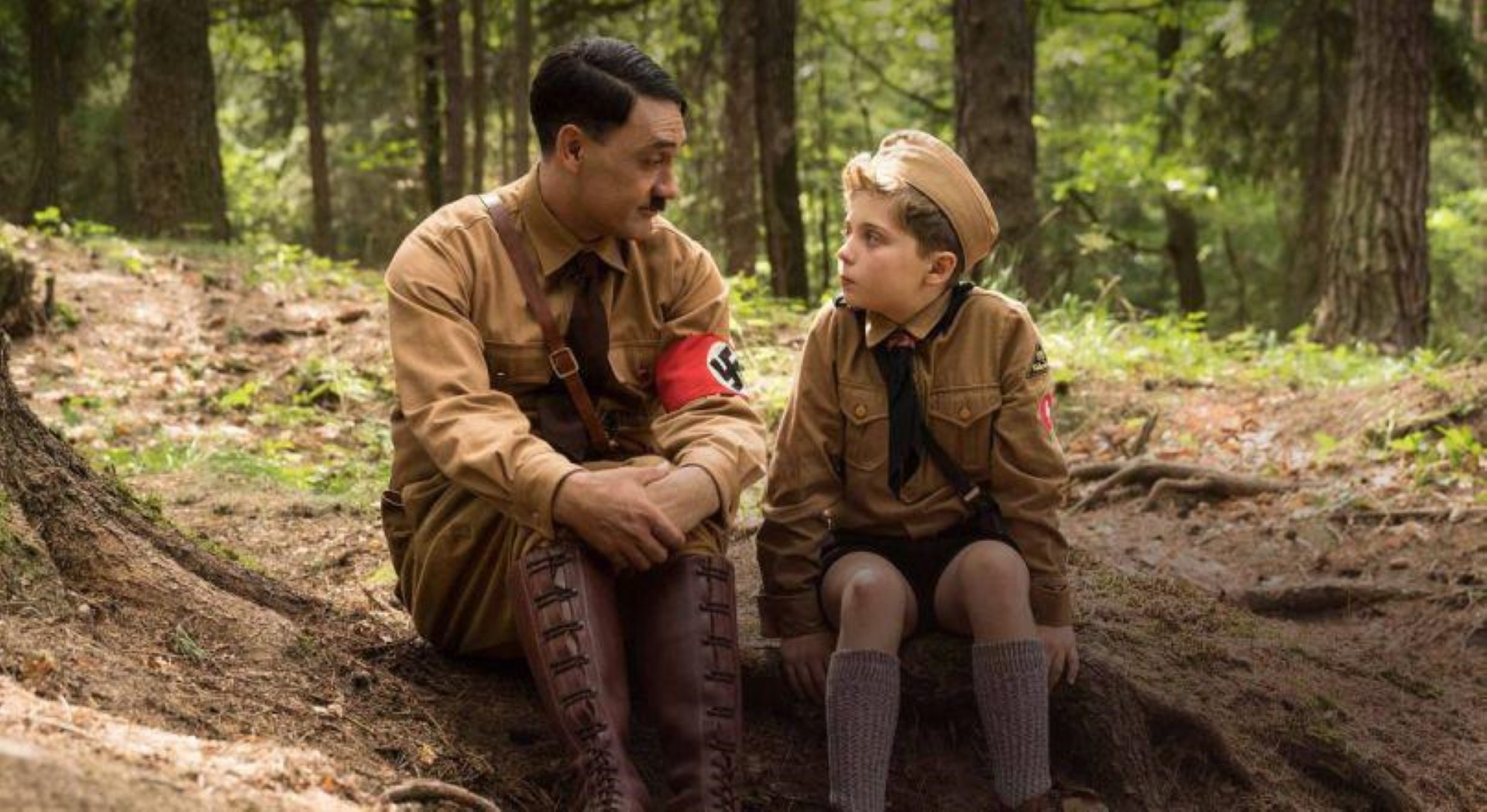
‘Jojo Rabbit’ review
By Jerrison Oracion, Senior Columnist
5/5
No matter what race you are, everyone is the same. Everyone has likes and dislikes, and everyone must face problems in their lives. In this era of fake news, misinformation is floating around. Fake news was not invented today though—Germany used propaganda to portray Jewish people negatively during World War II. This topic is at the heart of Jojo Rabbit, a film by Thor: Ragnarok director Taika Waititi, which has a colorful and comedic commentary on misinformation and racism.
The film, also written by Waititi—based on the much darker book, Caging Skies by Christine Leunens—won the People’s Choice Award at the Toronto International Film Festival this year. It had a sold-out screening at the Vancouver International Film Festival this year as well. The movie takes place in Germany during World War II, with lead 10-year-old Jojo Betzler (Roman Griffin Davis) as a passionate boy who dreams about serving his country and his leader Adolf Hitler. When Jojo gets frustrated about something, he gets advice from his imaginary friend—Hitler himself (played by Waititi).
After an injury in training camp, he temporarily gives out propaganda while recovering. When he goes back home he finds out that his mother, Rosie (Scarlett Johansson), is hiding a Jewish girl named Elsa (Thomasin McKenzie) in their walls. Jojo interviews Elsa to learn more about Jews in hopes of writing an exposé on them, but soon after he begins to question the actions of the Germans and his relationship with Hitler.
There are a lot of lines in the film that reference serious topics for which you must hold yourself and try not to laugh at. Waititi’s portrayal of Hitler is great, and he initially makes Adolf look like a father-figure in Jojo’s mind—yet he also acts in Hilter’s signature way, with an example being him making a negative reference to Jesse Owens, the real black American track-and-field star who showed Hilter and his Aryan regime up at the 1936 Berlin Olympics. McKenzie also did a great job portraying Elsa. In the beginning of the film, when Jojo feared her, she looked and acted fittingly creepy. As the film progresses, she becomes friendly instead of scary and menacing.
While everyone speaks in a German accent, their own accents come out as well. An example is when Stephen Merchant plays a Gestapo leader, Deertz, searching Jojo’s house—he is trying to sound German, yet he speaks in a British accent. There were a lot of fun moments from Jojo’s captain, Captain Klenzendorf, played by Sam Rockwell. Rebel Wilson plays the captain’s assistant, Fraulein Rahm, and she also did a good job.
The soundtrack has songs from the 1960s, in a way implying that the heyday of Germany in the 1930s had some similarities to the Beatlemania craze. The score includes the German version of The Beatles song, “I Wanna Hold Your Hand”—called “Komm, gib mir deine Hand.” Dancing is important in the film and we see a lot of unusual dancing throughout it. The scenes where Jojo interviews Elsa convey that everyone is doing the same thing, and that there is no good reason to hate people enough to declare war on them.
There is also a scene near the end of the film that is like a scene in the Terence Davies film The Long Day Closes. Jojo Rabbit is a very important history lesson about why propaganda is misleading, why genocidal wars are not going to solve problems, and that hate should not be part of humanity.


